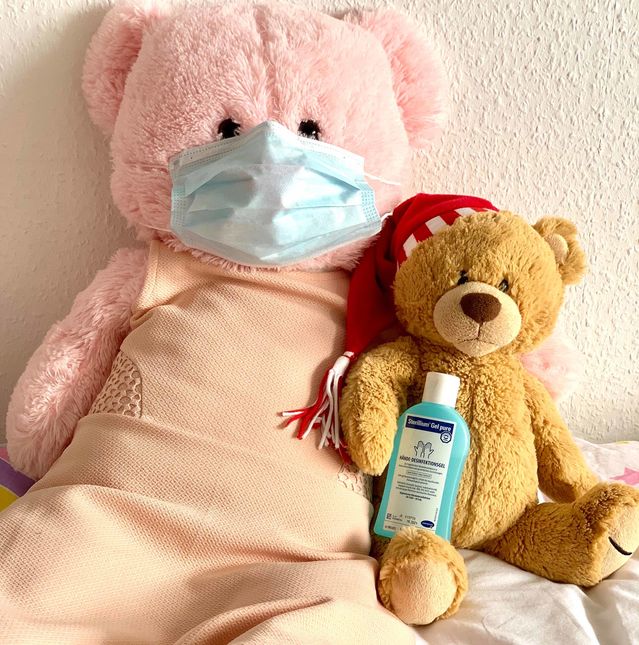Fear
10 Tips for Handling Distress During a Pandemic
Here are the psychological impacts we can expect, and what to do about them.
Posted March 26, 2020 Reviewed by Jessica Schrader

Living during a pandemic, what kinds of psychological impacts can we expect, and what can we do about the stress and distress we are experiencing?
First, we can learn from studies that identified psychological concerns affecting survivors of the SARS epidemic (Gardner & Moallef, 2015; Kessler, Petukhova, Sampson, Zaslavdky, & Wittchen, 2012; Mak, Chu, Pan, Yiu, & Chan, 2009). In the early stages of recovery, fear is a predominant response: fear for survival and fear of infecting others. Psychological/emotional distress and reduced quality of life were also reported in all stages of recovery. In the middle of a pandemic, fear is quite rational, as COVID-19 is life-threatening. While the overall mortality rate in the U.S. is about 1%, that rises to 3% for folks between 50 and 69 years of age, and 10% for folks 70 years and older (CDC, 2020). And we can infect others, some of whom we know well and care about deeply (infants and the elderly are particularly susceptible). So fear helps some of us to adapt to social distancing more readily.
However, crowded American beaches this week and last indicate how little some folks fear getting, or care about transmitting, the coronavirus. But it’s not too late to start taking COVID-19 and social distancing seriously. Adapt and self-quarantine today. On to the fun stuff.

Ten tips for handling stress/distress:
1. Maintain a routine. Structure is important. First, get plenty of rest. Then get up, shower, get dressed, and write down three things you are grateful for. Then pursue a manageable list of activities and tasks on weekdays. Commit to accomplishing a few things, then relax. I hereby give you permission to blow off just about everything on evenings and weekends and have as good a time as possible. How?
2. Make sweet music. Pick up an instrument, use software like Garage Band to create your own masterpiece, or simply tap your foot to tunes you love but haven’t had time to listen to lately. Some of you will feel the urge to dance. Comply with this urge.
3. Special tip for couples: Make sweet love, while also employing distance regulation. Being cooped up in the home can get on one’s nerves. So, if you have no symptoms and have tested negative, get as close as you possibly can, enthusiastically, with consent. Make love, then give your partner some space to himself or herself. Absence makes the heart grow fonder, so provide some breathing room so you can get close again later. Think of closeness and distance like a rubber band, gently stretching and contracting, so the two of you don’t go stir crazy or get relationship cabin fever.
4. Prepare healthy foods that support immune functioning. Ideas include mushroom orzo, stuffed red and green peppers, or Cajun shrimp etouffee. Spice up your life and expand your dietary horizons. Eat plenty of fruits, vegetables, and legumes that boost the immune system, such as food sources high in beta carotene (carrots, kale, spinach, sweet potatoes, and apricots), vitamin C (oranges, grapefruit, strawberries, Brussels sprouts, peppers, broccoli, cabbage and cauliflower), vitamin D (eggs, tofu, mushrooms, and fatty fish like salmon and sardines,), and zinc (beans, nuts, cereal, and seafood like oysters and crab). There is some evidence that supplements like oregano oil, olive leaf, and amla give some folks a boost as well.
5. Talk with people whom you trust to buoy your spirits. Contact friends and family. Explain how FaceTime works to someone older than you. I’m in a What’sApp group with people from all over the globe expressing well wishes and providing comic relief in the midst of a shared crisis. (Keep conversations brief with the friend who dramatically states, “You could catch the virus and die. Think about that.” Sigh. We all have one friend like that.)
6. Stay informed with actual facts. Listen to the medical experts like the World Health Organization (WHO), the CDC, and trained public health experts and epidemiologists. Click the mute button when politicians who know very little about pandemics and do not understand concepts like exponential growth, talk about their “gut feelings” and “how this virus is just going away.” Be open to real information that helps you assess the real risks so you can maintain the health and safety of yourself and others.
7. Avoid amping up anxiety. Don’t watch too much media coverage (WHO, 2020). Be like Goldilocks: Get information in moderation so that it’s “just right.” Too much pandemic news can be overwhelming to people of any age, but especially children and adolescents who may already be anxious about their world being turned upside down.
8. Engage in self-care activities. Meditate (if you’re a novice, download a free version of apps like Calm, or Insight Timer), do some yoga, keep a journal, call a friend or family member, read a book. Breathing exercises have been shown to instill calm. Breathe in for a count of four. Hold for a count of two. Breathe out slowly and fully for a count of six. Repeat three or four times. It really works.
9. Take a load off and cut yourself some slack. Catch up on TV shows. For instance, I’m almost caught up on Outlander and Star Trek: Picard. Make it so. Try not to lean into anxiety-provoking programming. Skip claustrophobic, frightening fare like Outbreak, The Strain, World War Z, or Contagion, unless you are glutton for punishment. If you are one of those people who do lean in, and likes reading about catastrophes, you can read this blog about climate change. It's scary.
10. Do not eat, drink, or smoke your feelings. How many of your friends, after stocking up on toilet paper and sanitizer, filled the pantry or basement with alcoholic beverages? Mental health can take a serious hit in quarantine, and eating all day or turning to daily use of substances do not qualify as healthy coping mechanisms. Contact a helping professional via the Psychology Today Therapist Directory if you or someone close to you is experiencing panic or is becoming so depressed that social and/or personal functioning begins to suffer (poor hygiene, major shifts in mood, feeling like there is nothing to look forward to, etc.). Remember to put your oxygen mask on first, so you can be well enough to assist others.
The stresses associated with COVID-19 and social distancing are substantial, and may be long-lasting. But we are in this together for the long haul. And those persistent, pervasive thoughts and emotions going through your mind and running around in your chest and stomach? It’s not just you. Everyone is experiencing some degree of worry and upset, and it’s not taboo to talk about those thoughts and feelings. Let’s provide social support to one another as we complete this marathon together.
References
Gardner, P. J., & Moallef, P. (2015). Psychological impact on SARS survivors: Critical review of the English language literature. Canadian Psychology/Psychologie canadienne, 56(1), 123-135. http://dx.doi.org/10.1037/a0037973




